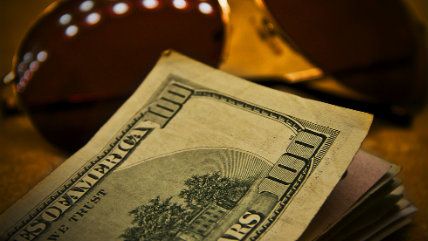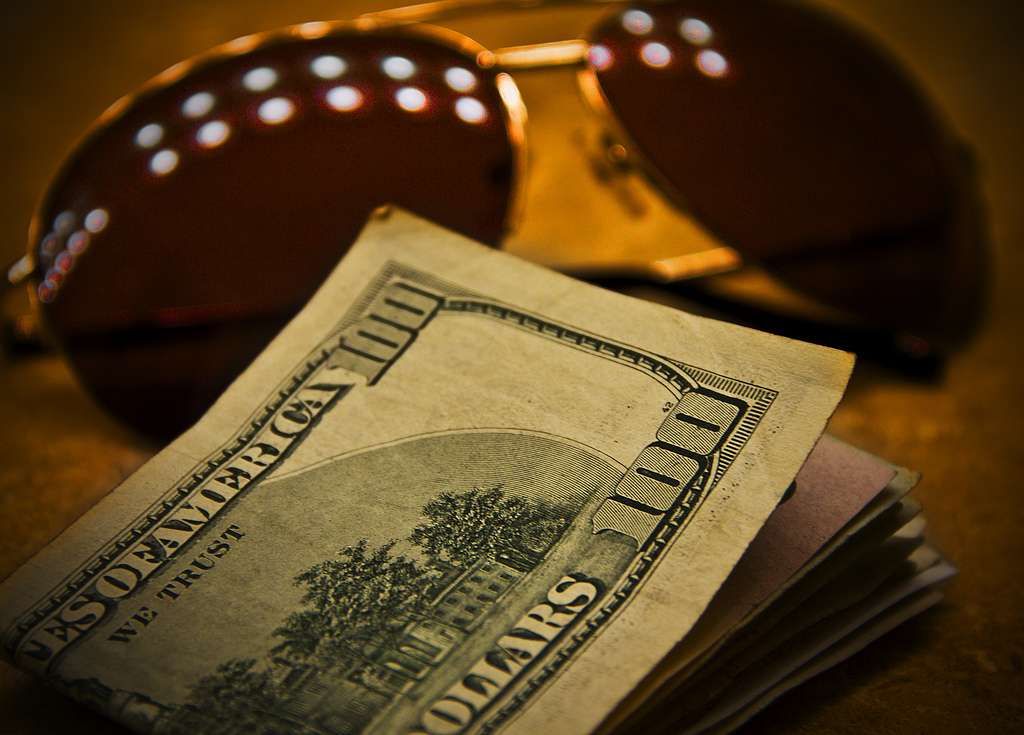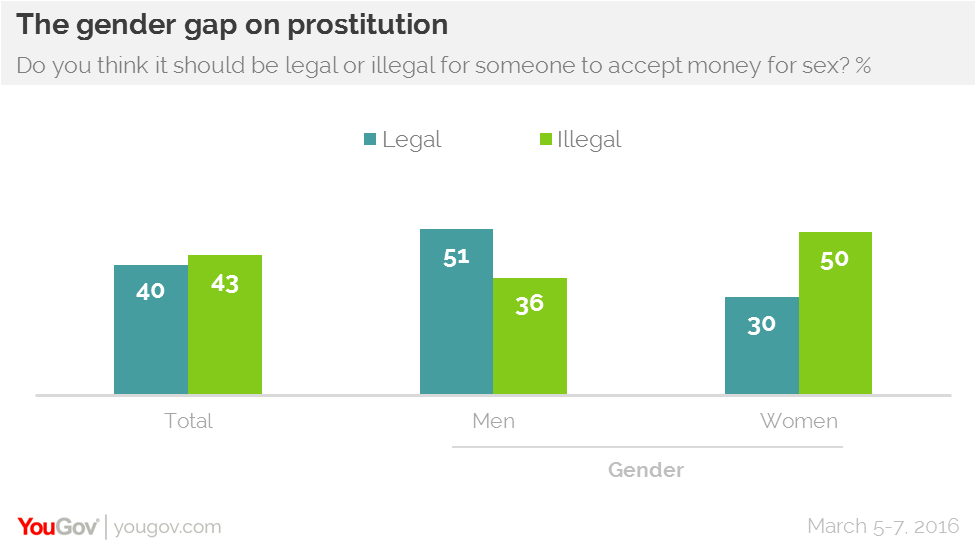Six Percent of Americans Have Accepted Payment for Sex
For those ages 30-44, it rises to almost 10 percent. But most Americans still think prostitution is "morally wrong."


In a new nationwide poll from YouGov, six percent of respondents said they have been paid for sex in the past, and seven percent have paid someone else for sex. Men and women were equally likely to have accepted payment for sex, but just one percent of the women said they had paid for it themselves, while 12 percent of the men said as much.
The findings were part of a broader survey about American attitudes toward prostitution and how society should handle it. YouGov interviewed 1,000 American adults between March 5-7, 2016, with results that get particularly interesting when broken down by demographics. One of the most notable findings is that twenty-somethings are much more likely than their elders to think buying and selling sex should be illegal and to recommend prison as an appropriate punishment.
Overall, slightly more people say getting paid for sex should be illegal (43 percent) than say that it should be legal (40 percent)—although with a 4.5 percent of margin of error on the study, the opposite could just as well be true. Seventeen percent weren't sure. A somewhat larger number of respondents were in favor of criminalizing the purchase of sex, with 45 percent in favor, 39 opposed, and 17 percent again unsure.
Among the youngest cohort, however, a full 50 percent of respondents said it should be illegal to pay for sex and 46 percent said it should be illegal to accept payment for it.
The gender divide in prostitution views was also stark, with men significantly more likely than women to say that both buying and selling sex should be legal. Half of male respondents said paying for sex should be legal, a position shared by just 29 percent of female respondents. Just 37 percent of male respondents said it should be criminalized, while 52 of the women surveyed did.

The breakdown was similar for accepting payment for sex: 51 percent of men said it should be legal and 36 percent said it should be illegal, while just 30 percent of women said it should be legal and 50 percent said it should be illegal.
Those who thought paying for sex should be illegal were asked about appropriate punishments. The largest block were in favor of community service (42 percent), followed by "small fines" (22 percent) and prison (20 percent); 16 percent weren't sure. Answers were nearly identical on desired punishments for people selling sex.
Ideas about punishments for prostitution were not strongly gendered, but those under 30 were much more likely to say prison was appropriate. Thirty-three percent of 20-somethings want to throw people in jail for paying for sex, a sentiment shared by just 24 percent of the next oldest group, 11 percent of 45- to 64-year-olds, and 12 percent of those over age 65.
Twenty-somethings were also the most likely to say prison was an appropriate punishment for sex workers, with 24 percent in favor. Just 15 percent of the oldest cohort believed prison was the answer.
And the kids were only slightly more likely than those 65+ to view buying or paying for sex as "morally acceptable," too. Those in the 30- to 44-year-old range, meanwhile, were least likely to see a problem with it. Overall, 57 and 56 percent of people said it was "morally wrong" to offer or receive money for sex.
Republicans were more likely than Democrats to have paid for sex (seven percent versus four percent), but also much more likely to say that doing so was immoral (70 percent versus 54 percent). Democrats were also more supportive of legalizing the buying and selling of sex, with around 40 percent of them in favor, compared to just 30-32 percent of Republicans.
Democrats were also more likely than Republicans to have been paid for sex, at eight percent versus five percent. Overall, people in their thirties and early 40s were the most likely to have accepted payment for sex, at nine percent, while eight percent of 45- to 64-year-old respondents had been paid for it.
Unsurprisingly, those in the lowest and middle-income brackets were the most likely to have been paid for sex, but they were also more likely than richer respondents to have paid for sex themselves. The regional split was pretty even for sex buyers, although there were more people who had been paid for sex in the Midwest.
Whites were more likely than blacks to say they had purchased sex (7 percent versus 5 percent), but less likely to say they had been paid for it (four percent versus 10 percent). Blacks outpaced whites in support for the criminalizaiton of prostitution but were less likely to see prison as an appropriate punishment, especially for those on the selling end. Just eight percent of blacks supported prison time for those who sell sex, compared 23 percent of whites and 25 percent of Hispanics.


Show Comments (230)